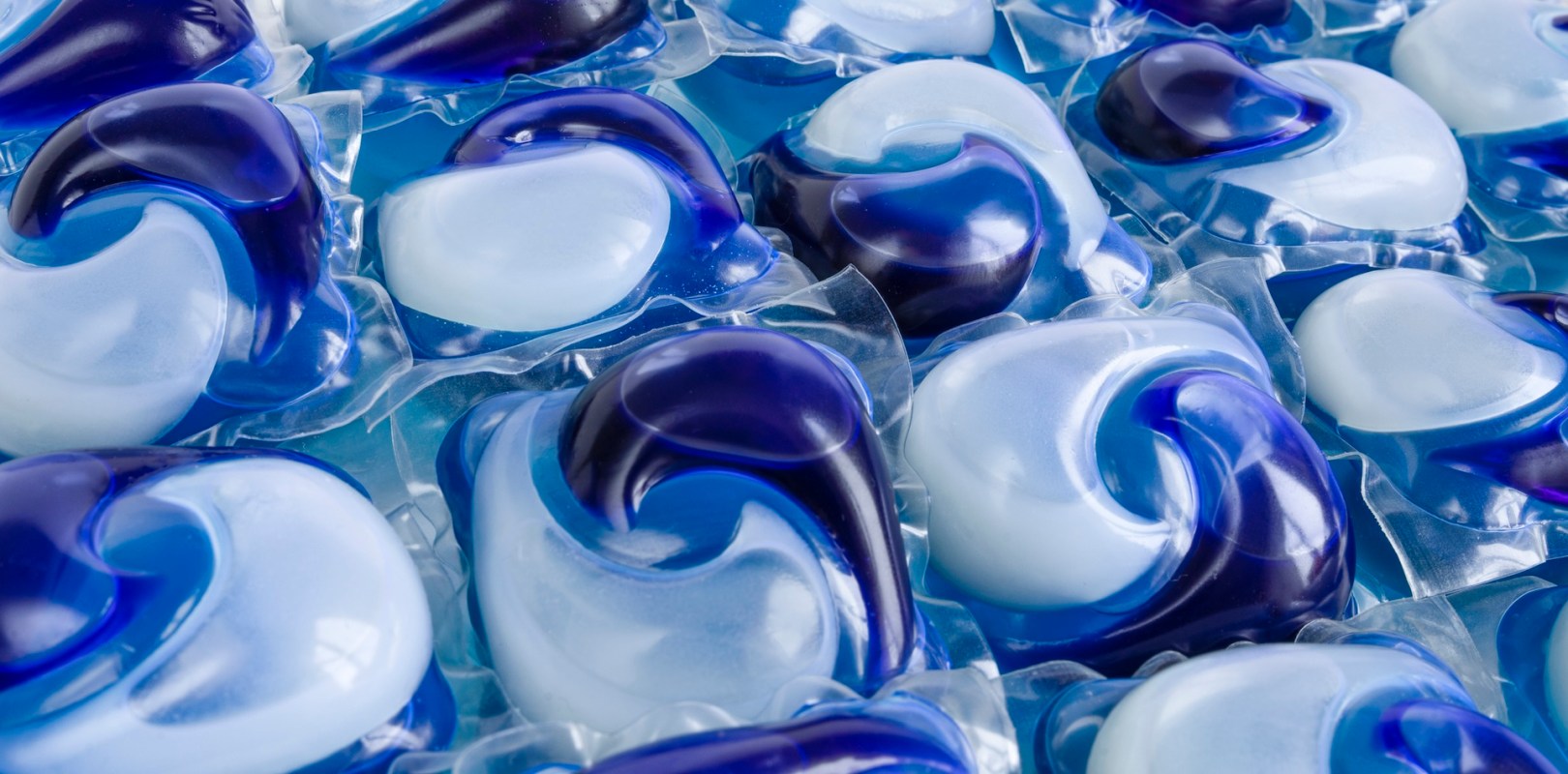A New York City politician is taking on our microplastics plague by asking for a ban on PVA-coated laundry detergent pods. Meanwhile, experts say the clothing industry's plastic problem requires a multifaceted approach.
What happened?
In February, Democratic New York City Councilmember James Gennaro introduced a bill that would ban laundry detergent pods coated in polyvinyl alcohol (PVA), Grist reported. The move aims to reduce the amount of microplastics that make their way into our environment.
But the clothing industry's microplastics problem is "a multifaceted issue," Judith Weis, professor emeritus of biological sciences at Rutgers University, told Grist.
As such, environmental advocates are calling for a broader array of solutions, including laws that would require using filters on washing machines, designing better clothing, and putting fast fashion out of style.
Why are microplastics in our clothing concerning?
According to the United Nations Environment Program, about 60% of the material used in the manufacturing of clothing is plastic. Many of those microfibers make their way into our environment — washing machines alone cause more than half a million tons of plastic microfibers to be released into the oceans each year.
Marine animals often eat these tiny plastic particles, mistaking them for food. This can lead to starvation, endocrine disruption, stunted growth, and broken-down digestive systems.
As animals eat other animals, the microplastics also make their way up the food chain, including into humans' digestive systems. While scientists do not fully understand the consequences of human consumption of microplastics, these tiny plastic particles could contribute to the development of a number of health problems, including cancer, neurodevelopmental conditions, and food allergies. Unfortunately, scientists have already found microplastics throughout people's bodies, from our brains to our bloodstream and even placentas.
That's not the only way microplastics from our clothing make their way into the environment, however. As we wear our hip new jeans or in-season sweater, microfibers slough off of our garments and contaminate the air, Grist reported. Scientists estimate that one person's normal clothing use could release more than 900 million microfibers in this way each year, the publication said. Manufacturing and end-of-life disposal processes contribute sizable amounts of microfibers into the environment as well.
What is being done about microplastics?
In addition to the potential laundry pod ban in New York, a few states have considered legislation that would make filters mandatory for appliance manufacturers. Others would like to offer rebates to consumers for the purchase of filters. Meanwhile, scientists are working on designing clothing that sheds fewer microfibers in the first place.
Weis also told Grist that apparel companies should be held accountable for their products' release of microplastics.
The microplastics problem isn't confined to the fashion industry, however. The plastics we use in our everyday lives break down over time, so it's important to curb our consumption altogether. You can do your part by investing in reusable items like metal razors, water bottles, and non-plastic sandwich bags. And of course, stay away from fast fashion.
Join our free newsletter for easy tips to save more, waste less, and help yourself while helping the planet.









